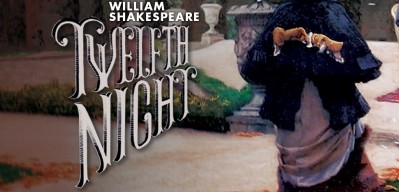Balancing comedy and tragedy: Twelfth Night Review
W . H. Auden once remarked that Twelfth Night was one of Shakespeare’s “unpleasant plays”, due to the comedic elements throughout the work being tightly interwoven with, and undercut by, the tragic and melancholic. The RSC’s latest adaptation of this classic beautifully captures its paradox of humour and tragedy. The production at once veers between the uproarious crassness and irreverent humour so characteristic of Shakespearean comedy, and the pensive depth of realist emotion that we find in the best of Shakespearean tragedy.
The cast is masterful and perfectly captures the wildly varying extremes of emotions present in the play, without any sense of disjointedness. Michael Cochran plays Andrew Aguecheek with a timidly innocent joy that at once makes him endearing and pitiable. Esh Alladi and Dinita Gohil as Sebastian and Viola respectively are charismatic and independent figures in their own right and have a familial chemistry that makes their brief time on the stage together believable and touching. Gohil perfectly captures both the humour and tension involved in her role as a character caught between worlds and genders.
Gohil perfectly captures both the humour and tension involved in her role as a character caught between worlds and genders.
Beruce Khan as Feste excellently captures the fool’s devil-may-care joviality and simple clownish wisdom, delivering the ‘foolish wit’ of the character with aplomb, breathing new life into one of Shakespeare’s most famous clowns. Kara Toiton’s stoic and controlled performance as aristocratic Olivia creates a stern female character with layers of deeper and more tender emotion, as befits her station as a Countess. Meanwhile, Sarah Twomey as Fabia and Vivien Parry as Maria are charismatic members of the ‘servant’ class. These strong and witty female characters are likeable and intelligent, and more than able to stand up against the relative haplessness of Andrew and Toby.
However, by far and away the standout members of the cast are Adrian Edmondson as Malvolio and John Hodgkinson as Toby Belch respectively. Hodgkinson dominates the stage with the sheer physicality of his presence and intensity of his character. He captures beautifully both the careless fun of the drunken sot and the darker, more savage nature of an alcoholic character with his booming voice and staggering manner. The performance could very well serve as a modern parable, treating the risks and dangers of alcoholism with all the severity and gravity that such a topic deserves.
The set design pleasingly manages to capture a sense of internationalism
Edmondson as Malvolio fantastically portrays the gamut of all the emotion that his character undergoes. He begins by capturing perfectly the irritating, self-important pompousness of the steward, with shades of ambition beneath that arrogance; he then plays his part as the euphoric clownish figure with an enthusiasm bordering on mania which is both ridiculous and captivating. But what really seals his performance is his appearance towards the end of the play when his character has been accused of madness. He portrays the senselessness of his suffering and his pointless pain with a sincere sorrow that makes his character tragic and pitiable. This event casts a decidedly dour and somber mood over the last twenty minutes of the play.
The sound design is fantastic and jovial – Nigel Hess’ music effectively captures and portrays both the tender and romantic love songs of Feste and the festive and jovial drinking songs of Toby and Andrew. Hess’ work takes inspiration from the best of musical theatre, with pieces reminiscent of songs from The Sound of Music. The melodious voices of the cast complement his composition fantastically. The set design pleasingly manages to capture a sense of internationalism which, along with the Asian ethnicities of Viola and Sebastian, creates a sense of global interconnectedness which works well within the context of the play’s story of intertwining and connected lives.
In short, this adaptation of Twelfth Night is a performance that aptly and touchingly captures all the essential elements of the play, and is a must-see both for those who love Shakespeare and theatre, and those who would like a good adaptation with which to introduce themselves into the world of Shakespeare.
Twelfth Night is at the Royal Shakespeare Theatre until 24th February 2018.
https://www.rsc.org.uk/twelfth-night/

Comments